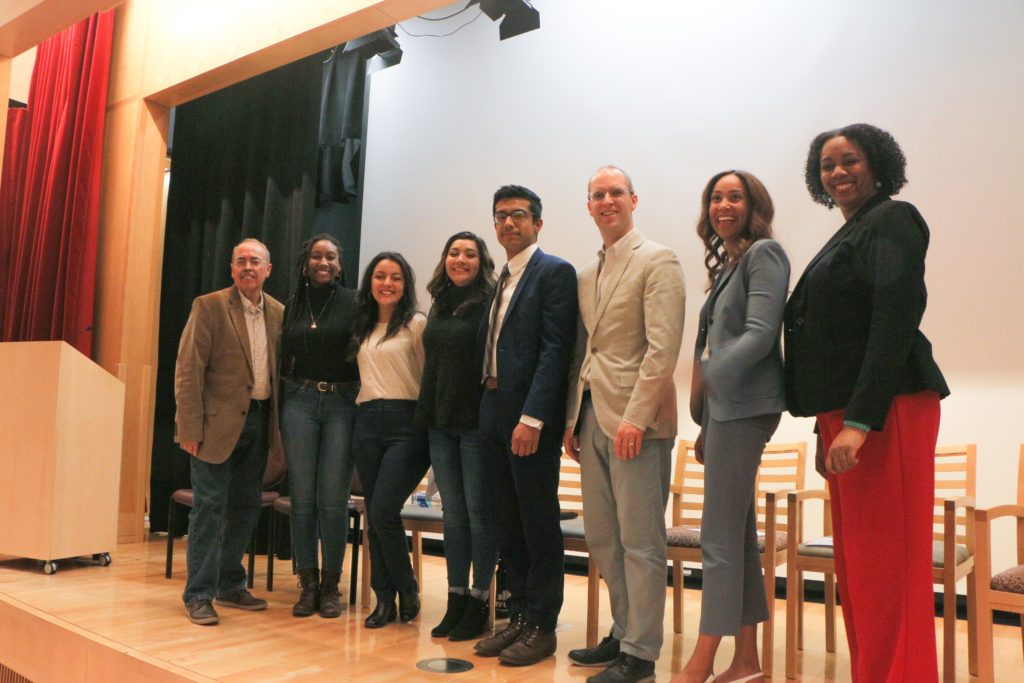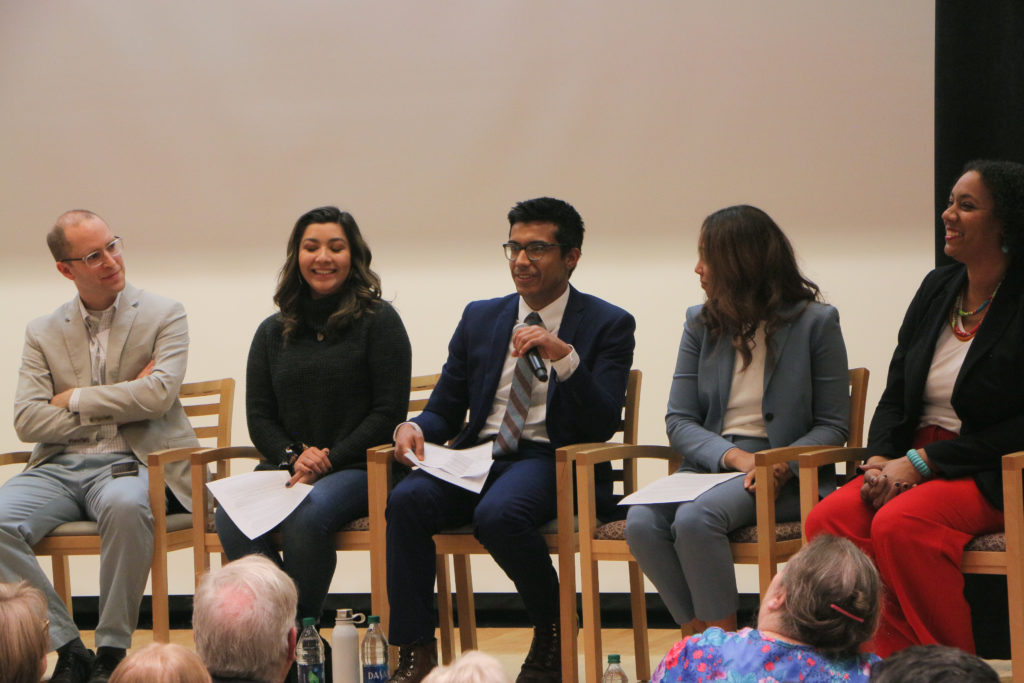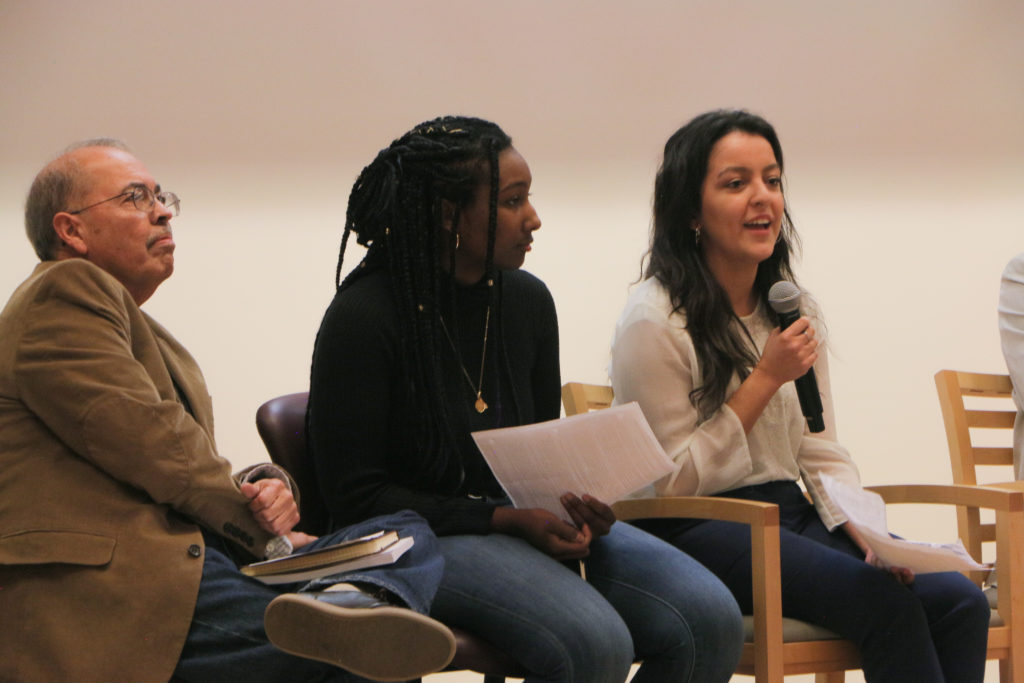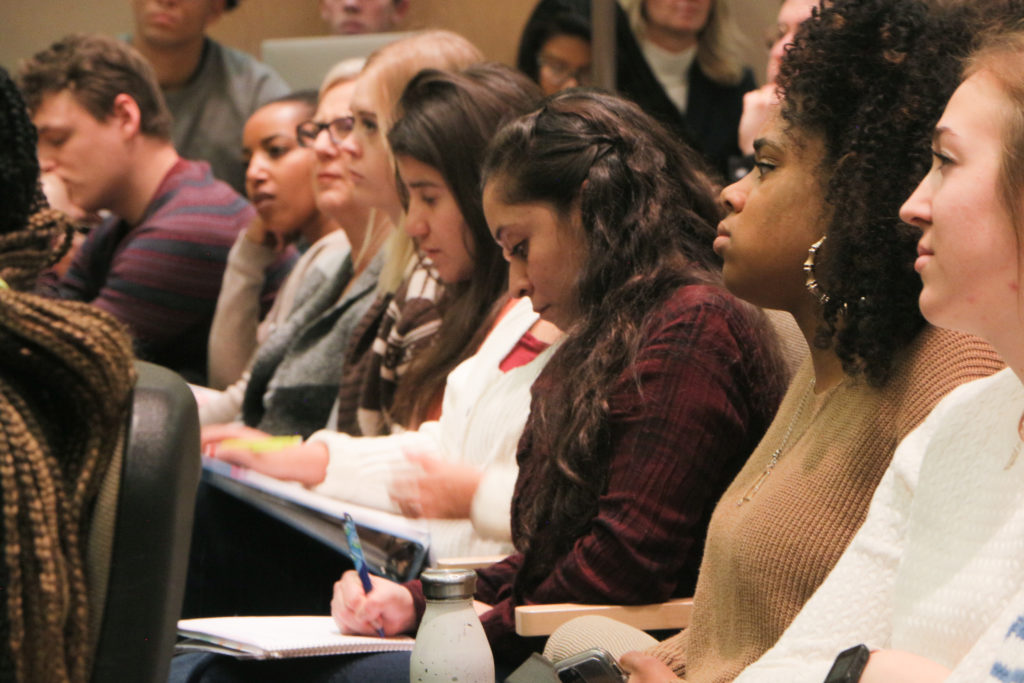
Sara Cardenas was excited to come to BYU, but for different reasons than most freshmen. As the daughter of two Mexican immigrants and some who grew up in the deep south of Mississippi, she was excited to come to a school with a broader demographic than just black and white students.
She was surprised, however, during her freshman year when she was approached on campus by a white male student who yelled at her to “go back to her country” while she was speaking in Spanish with her mother on the phone.
“I was so confused and angry,” Cardenas said. “My country is here.”
Cardenas joined with seven other panelists during Thursday night’s Black-Latino Alliance panel to share experiences with racism and activism in the black and Latino communities.
The panel was funded and sponsored by the David M. Kennedy Center’s Africana Studies Department. The panelists ranged from current students and professors to professionals from other areas of the state.

Among the panelists was Efrain Salazar, a computer engineering major from Nashville, Tenn. Salazar, who described himself as Chicano or Mexican American, said he has gained strength from the black community as he grew up in a place with very few people of Hispanic descent.
“We face common struggles as minorities in the United States,” Salazar said. “They help to unite us. You don’t fight hatred with hatred; you fight disadvantage and discrimination with solidarity.”
BYU sociology professor Jacob Rugh stressed the importance of Black-Latino alliances and cooperation of the two groups throughout history.
“Black-Latino alliances teach us that we cannot wait for justice,” Rugh said. “We cannot wait for white people in power to save us. We cannot wait for racism to fade away; we must overcome.”
BYU history professor Ignacio Garcia pointed out that black and Latino communities have not always cooperated but explained why it is so important that they learn to do so.
He drew the analogy of the American dream being like a pie, out of which a slice has been cut for minorities. He said minority groups used to make the mistake of fighting over how to subdivide that piece of pie, which put them in opposition with one another.
“I think we’ve gotten smarter, and there are people now saying that we’ve got to fight for the whole pie,” Garcia said. “Not take over the pie, but be part of the whole thing, because we need a slice of American society, a slice of American civil rights, a slice of economic prosperity.”
Tinesha Zandamela emphasized the importance of having conversations between different ethnic and racial groups. Zandamela, a 2018 BYU graduate, founded the BYU Women of Color Club in 2017 after repeatedly being told by administrators that “it was just not going to be possible or sustainable here.”
“I got to see a lot of people working together from different backgrounds to come together and have important discussions,” Zandamela said.
Kimberly Guerrero recognized the importance of these conversations. Race and culture have been defining factors in Guerrero’s identity as she learned what it meant to be Afro-Latina.
Guerrero’s parents are both from Colombia, but she said her appearance is often confused with that of an African American. She said she has faced constant confusion about her identity as she has tried to find a place among both the black and Latino communities.
“I had black people telling me I wasn’t black and Hispanic people telling me I wasn’t Hispanic,” Guerrero said. But she said she has since found confidence in her Afro-Latina identity and will happily share that with anyone who asks.

Amanda Galan has a unique experience compared to her fellow panelists. Galan grew up in Ecuador and moved to the United States two years ago.
“I had never been a minority,” Galan said. “Now apparently I’m an immigrant and an outsider.”
Galan said she recognized the need for activism and change after experiencing American society’s often discriminatory attitude towards members of the Latino community. She especially emphasized the importance of advocating for those without a voice.
“It’s not about one person making it, but it’s about all of us making it together,” Galan said. “Advocating for those without a voice is a Christlike activity.”
Daneka Souberbielle outlined some of the various ways students can become advocates for minorities without a voice.
“Some of you will want to go through government or higher ed, some of you will be scholars, some of you will be philanthropists, some of you may feel drawn to social entrepreneurship,” Souberbielle said. “All of those are important ways to engage with communities and create change.”
Garcia concluded the panel by speaking about the struggles he has faced in advocating for diversity in the university’s student body and faculty over the years.
“We’re all in this together. There’s just less of some of us and more of some of us,” Garcia said. “We should build on each other and work together so that we can have the kind of BYU campus that we really want.”
Next week’s Black History Month panel will focus on the experience of black immigrants in the community. It will be held on Feb. 6 at 4:30 pm in JFSB B192.





